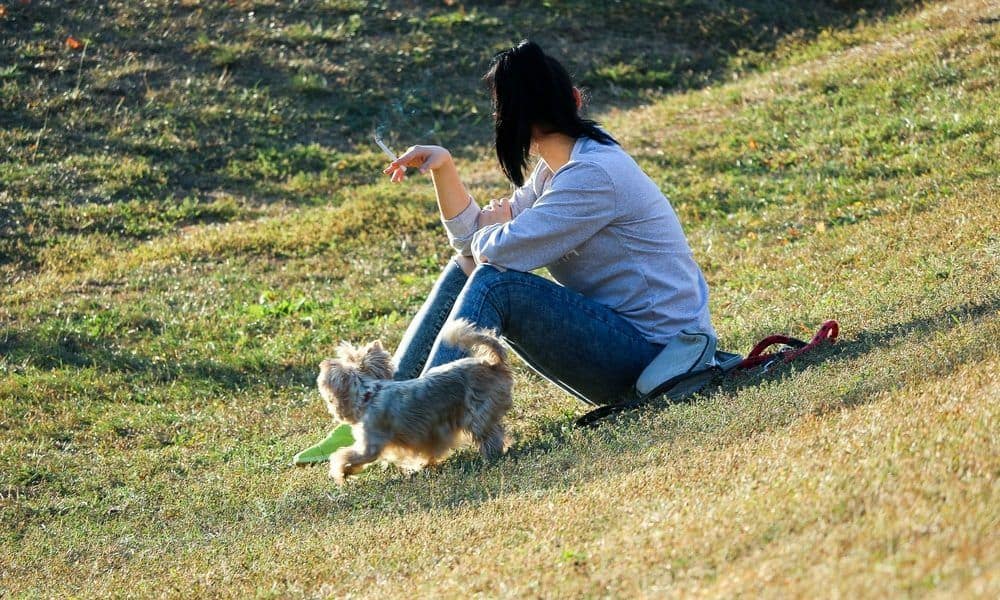Quitting Smoking for the New Year? Do it For Your Dog!

Have you been searching for a good reason to stop smoking? If you’re still not convinced enough to give it up for your own sake, would you consider quitting to protect your dog from harm?

Remember, pets living with smokers are far more likely to develop cancer as compared to those that live with non-smoking owners.
What You Need to Know
Secondhand smoke, also known as the Environmental Tobacco Smoke (ETS), is associated with a wide array of serious health threats for people, including life-threatening diseases such as cancer, heart disease, asthma, and even Sudden Infant Death Syndrome (SIDS). Because secondhand smoke contains toxic compounds like benzene and formaldehyde, it makes sense that the same lethal substances that harm humans might also put dogs in danger.
As a matter of fact, exposure to secondhand smoke seems to be worse for pets as compared to the smoker himself. You see, most people tend to spend time away from the home while their pooches stay behind, breathing-in stagnant air that sticks around in the house for several hours.
What Existing Studies Reveal
A 1998 study conducted by Colorado State University researchers which was published in the American Journal of Epidemiology uncovered a higher prevalence of sinus cancer and nasal tumors in dogs that live with smokers as compared to those who live in a smoke-free home. The study showed that the sinus or nasal tumors were particularly common among breeds with long noses such as German Shepherds and Retrievers. Sadly, the pooches which have developed the disease rarely survive more than a year.
In addition, the same research revealed higher rates of lung cancer in dogs with short to medium noses like Bulldogs and Boxers that live with smoking owners. Because of the breeds’ shorter nasal passages, it is easier for cancer-causing particles to reach their lungs.
Another research study published in the same journal found that pooches living in smoking households tend to have a 60% higher risk of lung cancer.
What You Can Do
Exposing your family and pets to secondhand smoke will definitely not improve their health. If you are a smoker but want to protect your loved ones as you work your way up to giving up smoking, try the following safety measures.
• Take it outside. Smoking outdoors will help prevent a great share of toxic smoke particles from settling inside your house or car.
• Buy a high-quality air purifying product to lessen toxic loads in your home.
• Try changing your clothes right after smoking or airing it out outside.
• Before you touch your pooch, make sure that you have washed your hands well after smoking.
• Keep your ashtrays clean and always see to it that you dispose of cigarettes, patches, nicotine gums, snuff, etc. in receptacles where Fido can’t gain access.
• Consider switching to electronic cigarettes, nicotine gum, patches, or other nicotine delivery methods without harmful secondhand smoke.



